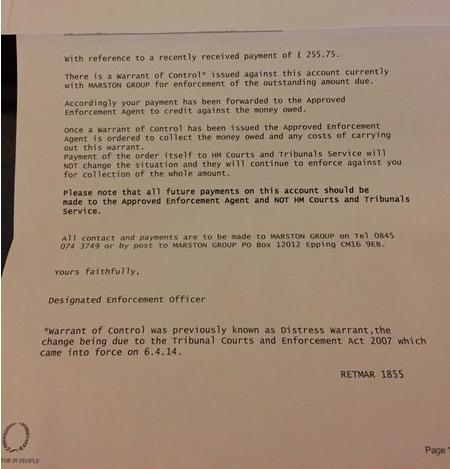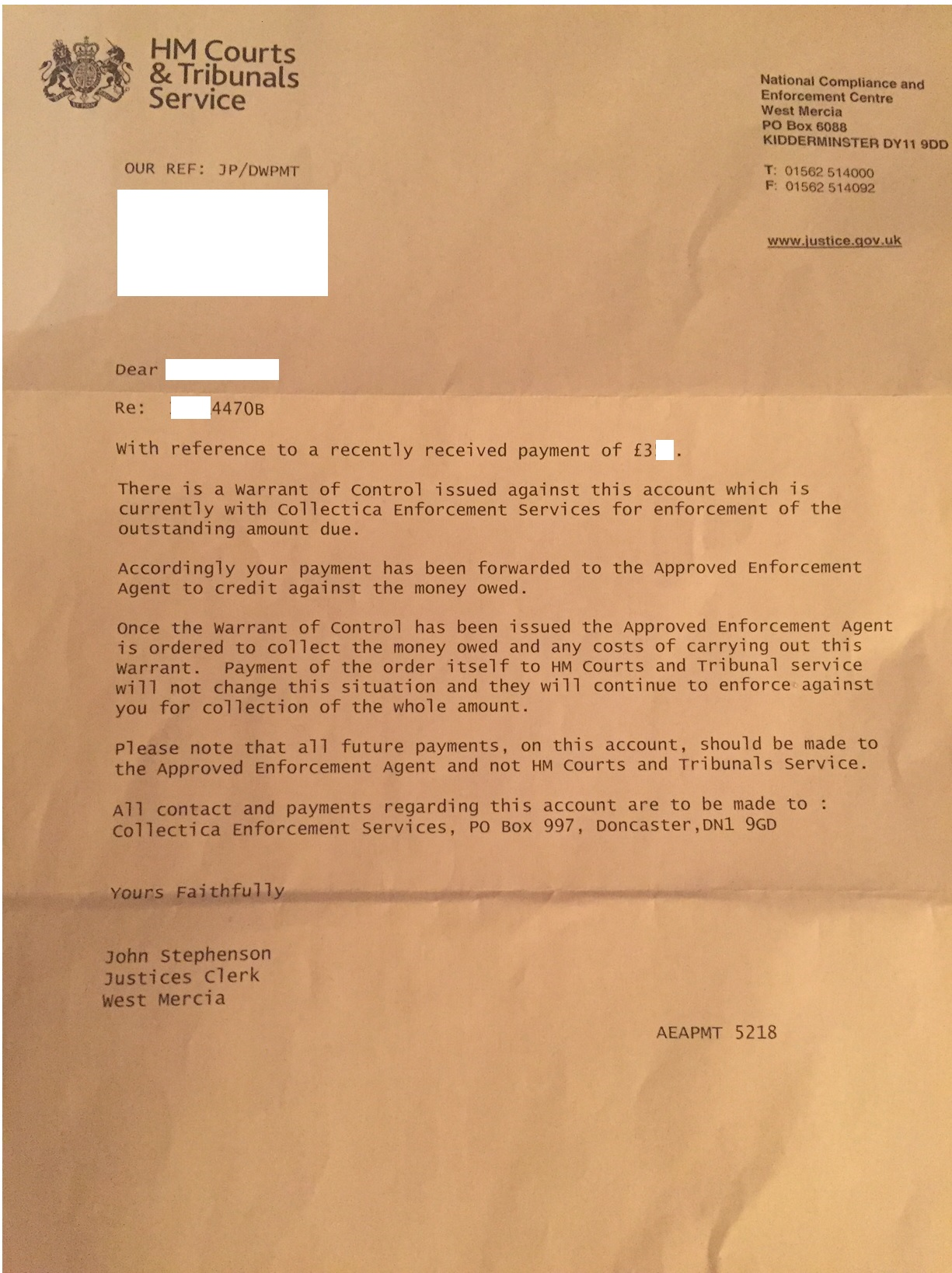You Paid Your Fine Online, But Bailiffs Are Still Pestering You.
Once you have paid your court fine (the "amount outstanding") directly to the court following the issue of a Warrant of Control, the enforcement power ceases. However, you may receive a letter from the court stating that they have given the money to a bailiff company for the purpose of deducting their fees and returning the balance to the court.
There is no legal provision for the court to transfer public funds to a private company for fee deduction. This misinterpretation of Regulation 13 of the Taking Control of Goods (Fees) Regulations 2014 is misguided. The regulation specifies that after a bailiff has sold goods to settle a debt, and if the "proceeds" fall short of covering both the fine and their fees, the bailiff may divide the sum "pro rata" between themselves and the court (the creditor). This rule applies exclusively when the bailiff has actually removed goods and sold them to raise "proceeds".
The letter represents an attempt by HM Court Service staff to safeguard the commercial interests of the bailiff company, which operates at no expense to the taxpayer. The bailiff company is only compensated upon successfully recovering both the debt and their fees.
Under Paragraph 59 of Schedule 12 of the Tribunals, Courts, and Enforcement Act 2007, you are required to inform the bailiff that you have paid the amount outstanding (a "paragraph 59 notice"). With this notification, the bailiff is liable if they take an enforcement step.
You may then seek a restraining order from the court under Section 3 of the Protection from Harassment Act 1997 to prevent further harassment. To support your application, you must provide evidence of the Warrant of Control detailing the adjudged sum and proof of the payment made directly to the court, demonstrating that the Warrant of Control has been discharged pursuant to Paragraph 6(3) of Schedule 12 of the Tribunals, Courts, and Enforcement Act 2007.
Examples



